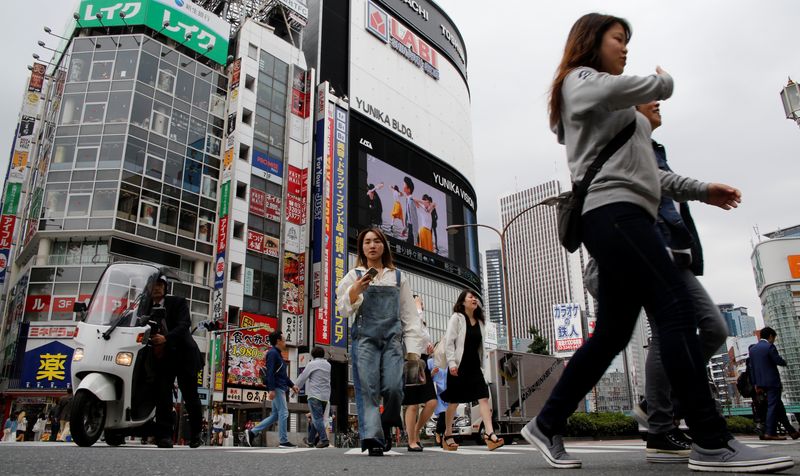TOKYO (Reuters) - Slightly more than half of Japanese firms are looking to raise wages by 3% or more for the next business year, a Reuters survey showed, but a majority of companies baulked at Prime Minister Shigeru Ishiba's quest to hike minimum pay by over 40% in five years.
The survey, conducted by Nikkei Research from Oct. 23 to Nov. 1, found 42% of the companies polled are considering wage hikes of 3% to 5% for the year starting April 2025, while 9% deemed an increase in the range of 5% to 7% possible.
About 41% said their wage increases will likely be in the range of 1% to 3%. The survey reached 505 companies, with 240 responding.
After decades of slow wage growth, widely cited by economists and policymakers as a major impediment to boosting domestic demand and fostering sustainable economic growth, companies have started to address the pay issue in recent years.
Bank of Japan Governor Kazuo Ueda has said Japan must see wages rise sustainably for the central bank to consider hiking interest rates again.
More than two-thirds survey respondents said their wage hikes for the next business year will be at the same level as for this year or higher, keeping momentum intact for pay increase.
Japanese companies delivered a wage hike of 5.1% on average this year, the biggest increase in three decades.
Some 52% of respondents said they intended to continue raising wages regardless of earnings fluctuations, while the rest showed no such intentions.
"Hiring is getting tougher every year, especially in the science and technology fields. Lifting wages is inevitable to secure talent," a manager at a chemical company wrote in the survey.
Others, however, were more cautious.
"Raising wages when earnings are poor would lead to a bigger loss and firing of employees. In the end, that wouldn't be so good for workers," an official at an electronics manufacturer said.
Asked about Ishiba's pledge to raise Japan's hourly minimum wage to 1,500 yen ($9.81) in five years, nearly two-thirds of respondents said it was an unrealistic target.
"When you think about rising raw material prices and utility expenses putting pressure on mid- and small-sized companies, sharp wage hikes would risk pushing many firms out of business," a manager at a ceramics company said.
Ishiba's Liberal Democratic Party (LDP) has pledged to make "untiring efforts" to raise the average minimum wage by 42% to 1,500 yen per hour by the end of the decade, bringing forward the target from the original mid-2030s set by the government last year and sparking a backlash from the business community.
On the issue of post COVID-19 work practices, 83% of respondents said coming into office for work was desirable, with just 17% considering it preferable to expand remote work as much as possible.
"Close communication in a conventional office setting is necessary to speed up the development of new products," an official at a paper and pulp firm said.
Others pointed out that allowing remote work is not applicable to the manufacturing sector and unfair to those working on production lines.

However, many of the respondents that believe they should move more towards remote work said flexible working arrangements would help them attract applicants and retain employees in the face of a labour shortage.
($1 = 152.8900 yen)